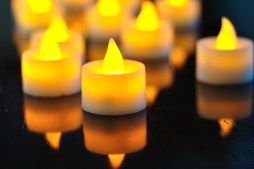From Ancient Festivals to Modern Celebrations: The Evolution of Public Holidays

Public holidays are an integral part of cultures worldwide, offering a chance for rest, reflection, and celebration. But have you ever wondered how these days became recognized as official holidays? From ancient festivals rooted in religious and seasonal observances to modern commemorations of historical events, the evolution of public holidays reveals fascinating insights into societal values and traditions.
The Roots of Public Holidays in Ancient Festivals
Many public holidays trace their origins back to ancient civilizations where communities gathered to honor gods, mark seasonal changes, or celebrate harvests. For example, the Roman festival Saturnalia was a week-long celebration dedicated to Saturn that involved feasting and gift-giving—a tradition that influenced later winter festivities. Similarly, harvest festivals were common worldwide as societies depended heavily on agriculture for survival.
Religious Observances Shaping Modern Holidays
Religious traditions have played a significant role in establishing public holidays. Christmas and Easter are prime examples originating from Christian beliefs but now widely celebrated beyond strictly religious contexts. Other religions also contribute key dates such as Ramadan in Islam or Diwali in Hinduism. These observances often evolve into public holidays recognizing cultural heritage alongside spiritual significance.
Nationalism and Historical Commemorations
As nations formed identities distinct from their neighbors, new types of public holidays emerged centered on historical milestones or figures. Independence days commemorate the birth of a nation’s sovereignty; for instance, the Fourth of July celebrates American independence from British rule. Memorial days honor those who sacrificed for their country’s freedom or well-being, reflecting collective memory and pride.
The Role of Labor Movements in Holiday Recognition
Labor movements have influenced the creation of certain public holidays aimed at recognizing workers’ rights and contributions. International Workers’ Day (May Day) originated from labor union campaigns advocating fair working conditions during the industrial revolution era. This holiday highlights social progress achieved through collective action across many countries.
Modern Adaptations and New Holiday Trends
In recent times, new public holidays continue to emerge reflecting contemporary social values like environmental awareness or cultural diversity celebrations such as Indigenous Peoples’ Day. Additionally, some traditional holidays adapt with changing customs—blending old rituals with modern festivities—to stay relevant within evolving societies.
Understanding the origins of public holidays enriches our appreciation for these special days beyond just time off work or school. They embody centuries-old stories about faith, identity, struggle, and unity that continue shaping our communities today.
This text was generated using a large language model, and select text has been reviewed and moderated for purposes such as readability.











